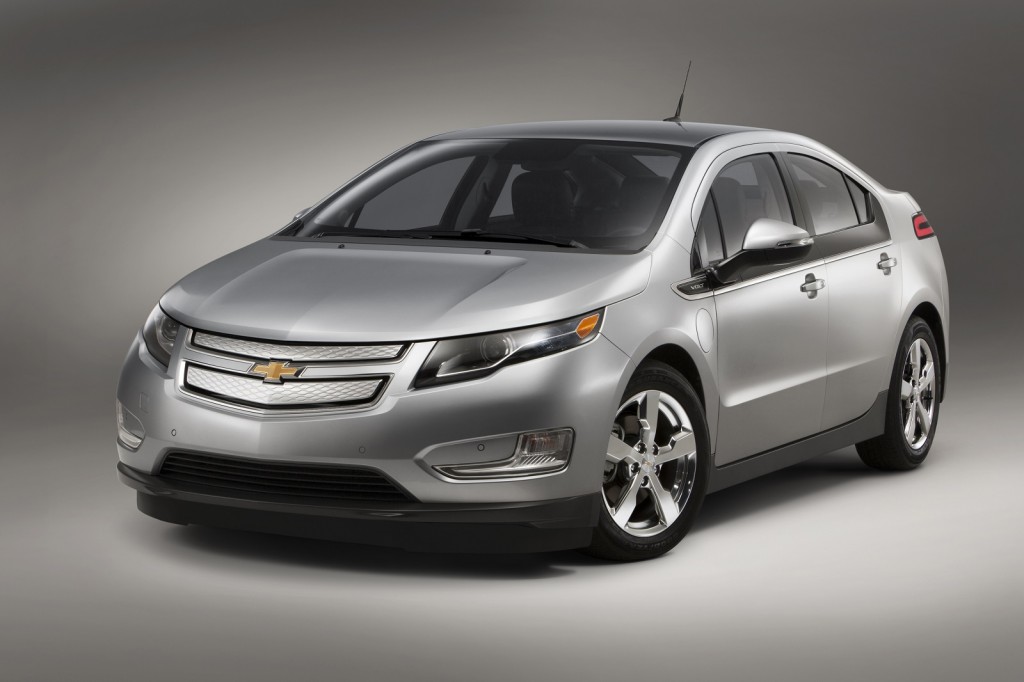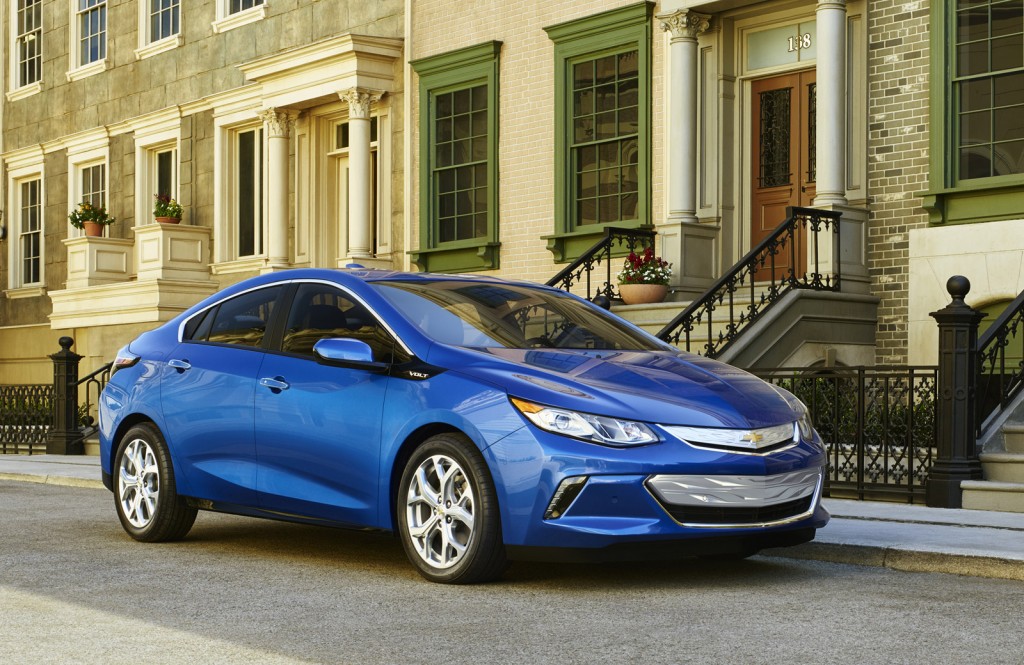Two carmakers sell plug-in electric cars; one is a pricey, sexy all-electric sport sedan, the other a range-extended electric compact hatchback.
One (the Tesla Model S) is a huge success, with its maker "going from strength to strength."
The other (the Chevy Volt) is "headed to the dustbin of automotive history."
DON'T MISS: If You Want To Attack The Volt, Try To Get Your Math Right (Dec 2011)
Or so says long-time automotive reporter Alex Taylor III in one of the odder and more bizarre articles on cars published in recent months.
Entitled "Car Wars: Why GM’s Volt slogs while Tesla’s Model S soars," the piece consists of Taylor's ruminations on why Tesla is doing well while--he says--the Volt is a dead-end that will apparently meet the same fate as GM's EV1 and its entire Saturn Division.
(For the record, both of those are now defunct.)

2015 Chevrolet Volt
"Tesla’s success to date should encourage every upstart business person who dares to challenge the conventional wisdom with a disruptive proposition," he writes. That's arguably true.
But going back to the Volt, there's just one problem: The metric that Taylor uses--monthly sales--is of limited use when one generation of a car is about to be replaced with an all-new version.
And that is exactly the case with the current 2015 Volt, as Taylor must surely know.
[UPDATE: The online version of the article now contains the following sentence: "GM seems determined to make the Volt a success and is launching a second-generation design with better performance and a 50-mile electric range for the 2016 model year."
We do not recall this sentence appearing in the original version, but we did not take screen-shots that would settle the issue. We regret that omission.
2015 Chevrolet Volt 5dr HB Dashboard
Taylor (or his editors) has now addressed the main concern of this article--so we have changed our headline accordingly.
The article also suggests that while the second-generation Volt may be coming, along with the 200-mile Bolt EV for 2017, "It is difficult to see them making much of a dent in the market."
Nissan has now sold 78,000 Leafs in the U.S market--more cars than Tesla--with a car that presently has only 40 percent of the Bolt EV's promised range.
This site looks forward to learning whether the next Volt and/or the Bolt EV can outsell Tesla over the next few years.
ALSO SEE: New Chevy Volt Ad Hits Back At Critics With 'Just The Facts' (Feb 2012)
GM is ending production of the 2015 Volt this month to make way for the all-new second-generation 2016 Chevrolet Volt, which will go on sale this fall.
As Taylor notes, the company has boosted the discounts on outgoing Volts. That's traditional practice as a model winds down, to help dealers clear out stocks of the vehicle about to be replaced.
Moreover, many potential buyers of the current 2015 Volt likely are waiting for next year's new model--which is cheaper, more capacious, quieter, and has both better fuel economy and a higher electric range, all at a lower price.

2016 Chevrolet Volt
That hurts sales of the current model, a phenomenon known as "Osborning".
But to be blunt, Taylor's "dustbin of automotive history" idea is idiotic.
There's a new 2016 Volt coming in September or October, which GM will make aggressive efforts to sell. There was no new EV1, and there are no new Saturns.
MORE: Truth-Telling Snopes Site Goes To Bat Over Chevy Volt E-Mail (Feb 2012)
In other words, Taylor's whole premise is wrong.
Two things remain puzzling. The first is how a respected auto journalist like Taylor could write such a piece without once acknowledging the upcoming model.
The second is how a once-proud brand like Fortune could publish it--seemingly without oversight or fact-checking by anyone who has any knowledge of the industry.
[hat tip: Brooke Crothers]
_________________________________________________













